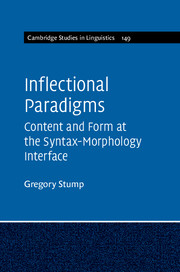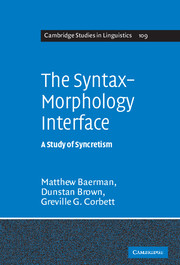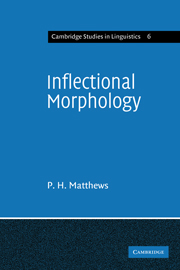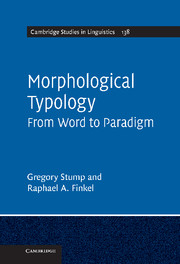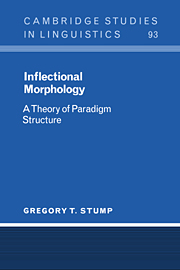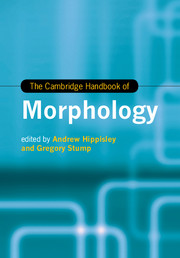Inflectional Paradigms
Sometimes dismissed as linguistically epiphenomenal, inflectional paradigms are, in reality, the interface of a language's morphology with its syntax and semantics. Drawing on abundant evidence from a wide range of languages (French, Hua, Hungarian, Kashmiri, Latin, Nepali, Noon, Old Norse, Sanskrit, Turkish, Twi and others), Stump examines a variety of mismatches between words' content and form, including morphomic patterns, defectiveness, overabundance, syncretism, suppletion, deponency and polyfunctionality. He demonstrates that such mismatches motivate a new grammatical architecture in which two kinds of paradigms are distinguished: content paradigms, which determine word forms' syntactic distribution and semantic interpretation, and form paradigms, which determine their inflectional realization. In this framework, the often nontrivial linkage between a lexeme's content paradigm and its stems' form paradigm is the nexus at which incongruities of content and form are resolved. Stump presents clear and precise analyses of a range of morphological phenomena in support of this theoretical innovation.
- Carefully chosen examples provide readers with thoroughly explained instances of content/form mismatches in inflection
- Evidence from a wide range of languages demonstrates the universal applicability of the analytic framework developed in the book
- Provides precise definitions, examples and applications of novel theoretical concepts
Reviews & endorsements
'Inflectional paradigms is an excellent book combining clarity of exposition, rich empirical coverage and theoretical sophistication. … I would like to recommend Stump's new book to all interested in morphological typology and theories of syntax-morphology interface, including not only linguists of a more theoretical stance, but typologists and descriptive linguists as well.' Peter M. Arkadiev, The Linguist List
Product details
January 2016Paperback
9781107460850
239 pages
228 × 152 × 17 mm
0.45kg
33 b/w illus. 182 tables
Available
Table of Contents
- 1. What are inflectional paradigms?
- 2. Canonical inflectional paradigms
- 3. Morphosyntactic properties
- 4. Lexemes
- 5. Stems
- 6. Inflection classes
- 7. A conception of the relation of content to form in inflectional paradigms
- 8. Morphomic properties
- 9. Too many cells, too few cells
- 10. Syncretism
- 11. Suppletion and heteroclisis
- 12. Deponency and metaconjugation
- 13. Polyfunctionality
- 14. Theoretical synopsis and two further issues.

